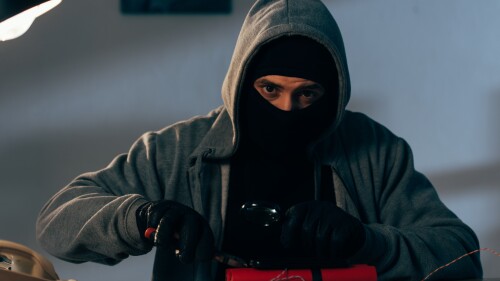The online version of the long-running Arabic journal Ruz al-Yusif carries an exclusive interview with Sheikh Osama al-Qusi entitled, “Former Salafi: Salafis Have Distorted Islam.” In the interview, Qusi discusses the “true thoughts” of the various Islamic groups, which “they conceal under a political mask"; he insists they have “distorted and exploited” Islam.
What he says concerning the Muslim Brotherhood and its methods of indoctrination and subversion are particularly noteworthy—notwithstanding Obama’s Director of National Intelligence’s assurances that the Brotherhood is a “largely secular” organization.
First, about Sheikh al-Qusi. He spent the last 39 years in different Islamic organizations in Egypt—beginning with the Brotherhood in the 1970s and ending with the more extreme Salafis. He still claims to be, not just a Muslim, but a Salafi—a sincere follower of “pure” Islam, as dictated by its prophet Muhammad. But he maintains that all Islamic groups are “manipulating” Islam for their own political ambitions. Accordingly, he “announced his break and washed his hands of them all, refusing to be a merchant of religion.” If laudable, some of his positions are unorthodox, for instance, that it is permissible to have a Christian or female for a leader.
When asked to discuss “how it all began” for him, Qusi reminisced:
In the beginning, one is a born Muslim; then you begin to be lured, from whence, you do not know.
I was a medical student in the 1970s and the Muslim Brotherhood lured me to them from within the university. Nor did I even realize they were the Brotherhood. Anwar Sadat was president during this time, when he committed his greatest mistake—a mistake he paid for with his life. Not that he released these groups from the prisons after [his predecessor] Abdul Nasser had incarcerated them; but rather for giving them the green light to work in all fields of Egyptian society, thinking he would use them to get rid of his Socialist and Communist opponents. So he permitted them to work in trade unions, school unions—giving them every opportunity to hold official positions [Emphasis added].
As a student I had noticed that some of my fellow classmates were considerably older, eventually realizing they were former prison inmates. They began to distribute hand-written copies of Sayyid Qutb’s books, which were banned at the time. And we thought that they were heroes, imprisoned for their commitment and intellectual rigor, persecuted by the regime for their patriotism. Unfortunately, they greatly influenced us, since, at the time, we did not know how to differentiate truth from falsehood in regards to the ideas, principles, and pronouncements they exposed us to—to the point that religion and politics became one and the same for us. This was the beginning of my deviation.
Here, then, is firsthand testimonial from someone closely affiliated with the Brotherhood on how born Muslims can be lured and indoctrinated from within—and all in a very legal, peaceful manner. Sadat’s fault was less that he freed the Brotherhood, more that he allowed them legitimacy.
Qusi went on to discuss how these groups learned that the assassination of Sadat and the strikes of 9/11 were nothing to celebrate, to the point that some of those involved renounced these acts, having learned that stealth and patience are more effective than open warfare, which only brings unwanted attention.
All this is a warning to the West, where Muslim organizations, such as the Council on American-Islamic Relations (CAIR), a Muslim Brotherhood front group, implement the strategy their parent organization has perfected over the course of decades—incrementally subverting free societies from within.
Raymond Ibrahim is a Shillman Fellow at the David Horowitz Freedom Center and an Associate Fellow at the Middle East Forum.







